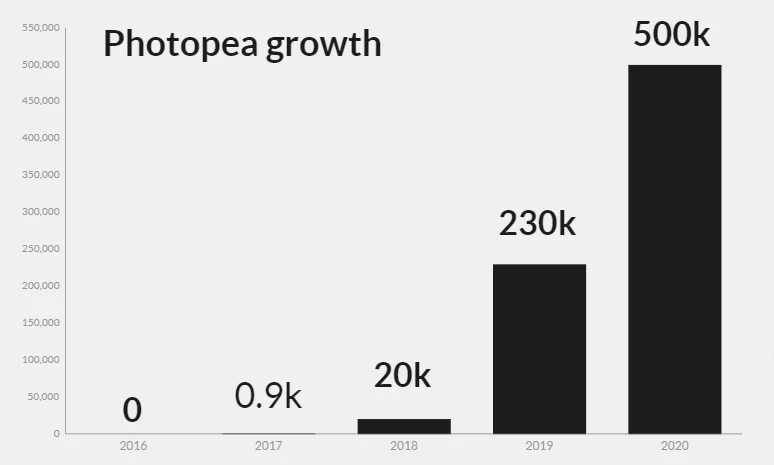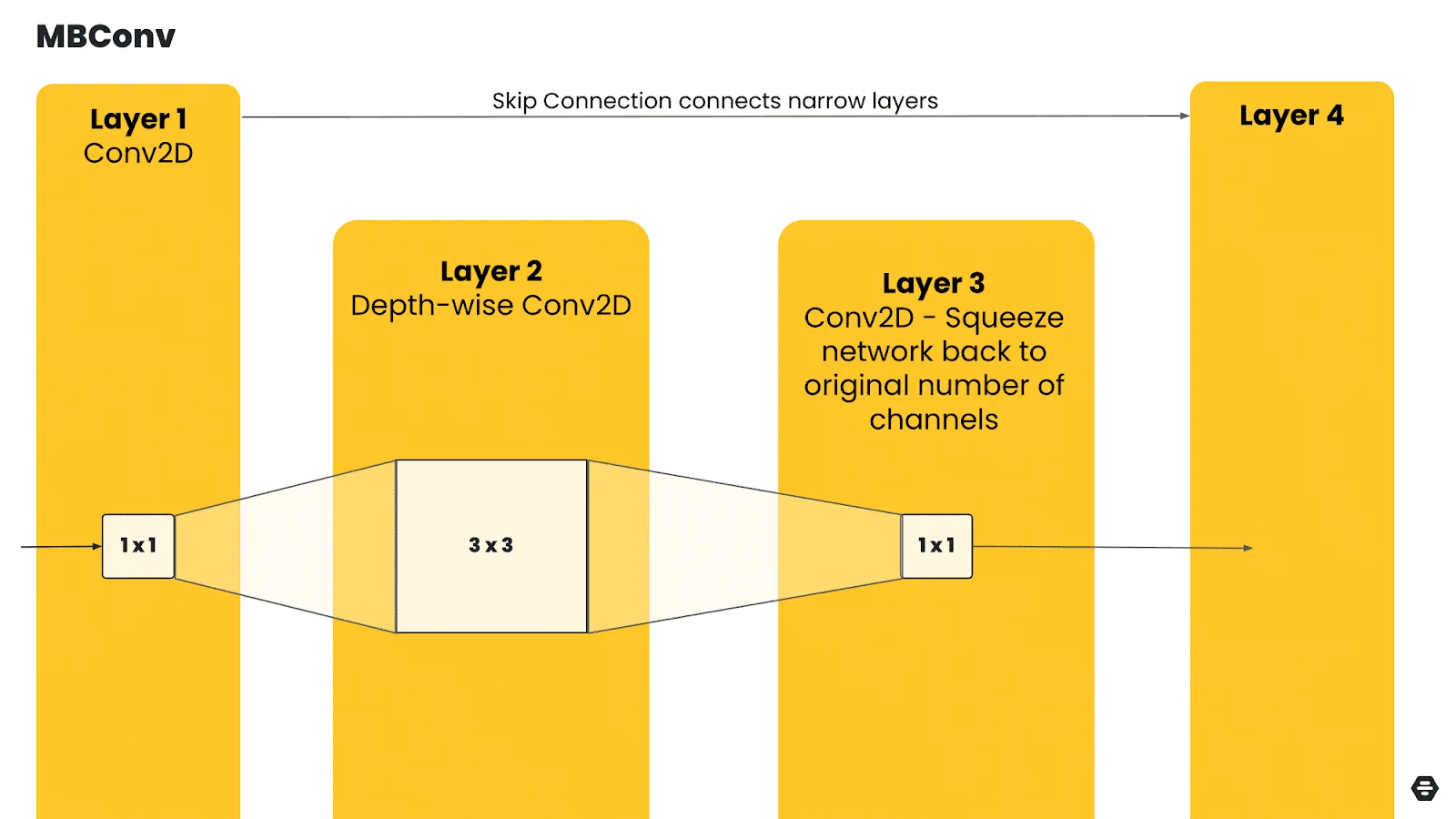- 22
- 47
Elon Musk texts Parag Agrawal
— Internal Tech Emails (@TechEmails) October 28, 2022
April 7, 2022 pic.twitter.com/24Nz3aRmR8
Orange Site:
- snus : great reset WEF george soros klaus schwab NWO live in the pod eat the bugs own nothing be happy
- 4
- 19
Orange site: https://news.ycombinator.com/item?id=33359240
Recently, as I was about to go through airport security, a saleswoman intercepted me asking if I wished to skip the security line. Intrigued, I invited her to tell me more. She shuttled me over to the CLEAR electronic kiosk and explained how the product worked. For only $180 a year, I could skip long lines at airports, sporting events, and other large gatherings. The company's Web site explains: "Instead of using traditional ID documents, CLEAR uses your eyes and face to confirm it's really you." The CLEAR system uses not just an iris scan and facial recognition, but other biometrics like fingerprints, tied to demographic data you voluntarily hand over, and a link to your credit score (read the fine print on the consent checkbox). CLEAR also has a Health Pass that stores proof of vaccination, negative Covid tests, and health surveys.
CLEAR isn't the only enterprise working at the intersection of biometric and digital authentication. Plans for digital IDs have been in the works for several years, but they gained traction during the pandemic. ID2020 is a nonprofit alliance founded in 2016 with seed money from Microsoft, Accenture, PricewaterhouseCoopers, the Rockefeller Foundation, Cisco, and Gavi (a vaccine alliance founded by the Gates Foundation). The stated mission of ID2020 is to provide digital identities for all people worldwide by 2030. Digital IDs will be tied to fingerprints and other biometric data like iris scans, demographic information, medical records, data on education, travel, financial transactions, and bank accounts.
Almost two years before Covid, ID2020 published an article titled "Immunization: An Entry Point of Digital Identity." It argued that "immunization poses a huge opportunity to scale digital identity." The article noted cumbersome inefficiencies with paper immunization records and delineated how health challenges in developing nations could be leveraged as the pretext for implementing digital IDs. The year before, Seth Berkeley, CEO of Gavi, published a piece in Nature making the same argument: To achieve 100 percent vaccination rates in underdeveloped nations, we need digital IDs. Gavi has promoted the same message at gatherings of the World Economic Forum in Davos.
The ID2020 article attempted to frame the benefits of this system as follows: "Because immunization is conducted in infancy, providing children with a digital child health card would give them a unique, portable digital identity early in life." It goes on to explain that "as children grow, their digital child health card can be used to access secondary services, such as primary school, or ease the process of obtaining alternative credentials. Effectively, the child health card becomes the first step in establishing a legal, broadly recognized identity."
This may at first glance sound sensible. But consider: If an impoverished family doesn't accept the health NGO's preferred interventions for its children, these children may not be provided any other opportunity to establish a "legal, broadly recognized identity" necessary to access things like primary school. In other words, you are literally nobody until you are vaccinated.
Just before the pandemic broke, in September 2019, ID2020 partnered with Gavi and began putting this plan into action. Using vaccines as leverage, it launched a biometrics-based digital-identity program for newborn infants in Bangladesh. The country's government embraced the initiative. When the pandemic began, ID2020 pivoted immediately to fold digital identification into Covid testing and other pandemic measures.
India's biometric ID system, Aadhaar, is the largest on the planet, with 1.3 billion digital IDs issued, covering 92 percent of the population. It requires Indian citizens to submit their photograph, iris scan, and fingerprints to qualify for social services, benefits, compensation, scholarships, legal entitlements, and nutrition programs. According to an article in the Financial Times, "Indian media has reported several cases of cardless individuals starving to death because they could not access benefits to which they were entitled." As the author notes, some critics argue the Indian Aadhaar system "has largely failed to fulfill its original promise of improving welfare and now acts as a tool for social exclusion and corporate influence."
"We are conditioning children to accept biometric verification."
Using biometrics for everyday transactions routinizes these technologies. We are conditioning children to accept biometric verification as a matter of course. Face IDs are now used in multiple school districts to expedite the movement of students through school lunch lines. Until recently, biometrics such as fingerprints were used only for high-security purposes---when charging someone with a crime, for example, or when notarizing an important document. Today, routine biometric verification for repetitive activities from mobile phones to lunch lines gets young people used to the idea that their bodies are tools used in transactions. We are instrumentalizing the body in subtle but powerful ways.
Those with economic interests in creating markets for their products---whether vaccines, digital surveillance products, or harvested data---will continue to deploy the carrots and sticks of access to medical care and other services to promote digital IDs in underdeveloped nations. In developed nations, they will initially use a velvet glove approach of nudges, selling digital IDs as convenience and time-saving measures that will be hard for many to turn down, like skipping long Transportation Security Administration security lines at airports. The privacy risks, including the possibility for constant surveillance and data harvesting, will fade into the background when you are about to miss your flight if you can't skip to the front of the line.
But as Nick Corbishley, author of a recent book on digital IDs, points out, decisions made in the moment may carry long-term negative consequences: "If biometric data is hacked, there is no way of undoing the damage. You cannot change or cancel your iris, fingerprint, or DNA like you can change a password or cancel your credit card." Unless we collectively decline to participate in this new social experiment, digital IDs---tied to private demographic, financial, location, movement, and biometric data---will become mechanisms for bulk data harvesting and tracking of populations around the globe. Welcome to the new abnormal.
- 17
- 9
reeeeeeeeeeeeeee
- 7
- 21
Investors wiped more than $65 billion from Meta’s market capitalization on Wednesday after the Facebook owner reported another quarter of declining revenues and failed to convince investors that big bets on the metaverse and artificial intelligence were paying off.
Shares in Meta dropped 19 percent in after-hours trading as the world’s largest social media platform joined other Big Tech groups in warning that an economic slowdown was hammering its advertising businesses as brands spend less on marketing.
On top of the wider macroeconomic woes, Meta faces a confluence of challenges, including rising competition for its Instagram platform from rivals such as short-form video app TikTok and difficulties in targeting and measuring advertising because of Apple’s privacy policy changes.
The company said it expected revenue in the current quarter to be in the range of $30 billion to $32.5 billion, compared with analysts’ expectations of $32.2 billion.
Net income in the third quarter fell 52 percent to $4.4 billion, below consensus estimates for $5 billion, according to S&P Capital IQ. Meanwhile, revenues fell 4 percent to $27.71 billion, the slowest pace of growth since going public in 2012, after a 1 percent decline last quarter. That was slightly better than analysts’ estimates for a 5 percent drop.
Mark Zuckerberg, Meta founder and chief executive, warned the company faced “near-term challenges on revenue” but said “the fundamentals are there for a return to stronger revenue growth.”
On a call with analysts, he doubled down on his biggest bets including developing a short-form video format to rival TikTok, business messaging, and the metaverse. He tried to reassure investors that investments in these areas would pay off in the long term.
“I appreciate the patience and I think that those who are patient and invest with us will end up being rewarded,” he said, arguing that the company was doing “leading work” on the metaverse that would be “of historical importance.”
Meta’s disappointing earnings came amid a broader sell-off of Big Tech stocks. Shares of Google parent Alphabet fell more than 9 percent on Wednesday after it reported an unexpectedly severe slowdown in its core search ads business, while Snap’s stock plunged last week after it posted its slowest pace of growth since going public in 2017.
Meta, which expanded headcount rapidly during the pandemic, has faced investor scrutiny for spending heavily on Zuckerberg’s vision of building a digital avatar-filled world known as the metaverse. Like other virtual and augmented reality projects Meta is working on, this is not expected to generate returns for many years.
Revenues from Reality Labs, its metaverse unit, nearly halved in the third quarter to $285 million, while losses were $3.7 billion compared with $2.6 billion a year ago. The company said it expected operating losses in the unit to “grow significantly year-over-year” in 2023.
“Meta is on shaky legs when it comes to the current state of its business,” said Debra Aho Williamson, an analyst at Insider Intelligence. “Zuckerberg’s decision to focus his company on the future promise of the metaverse took his attention away from the unfortunate realities of today.”
The company estimated 2022 total expenses would be in the range of $85 billion to $87 billion, narrowing from its prior outlook of $85 billion to $88 billion. However, it anticipated 2023 expenses in the range of $96 billion to $101 billion despite recently seeking to cut costs and freeze most hiring.
The company said it was “making significant changes across the board to operate more efficiently” and had “increased scrutiny on all areas of operating expenses.”
But it warned “these moves… will take time to play out” and that some attempts to find savings, like shrinking its office space as more employees work from home, would result in “incremental costs in the near term.”
Zuckerberg told analysts that investment in its artificial intelligence capabilities contributed to a surge in capital expenditure but that the technology would help boost views of its short-form video format.
Analysts also raised concerns about mounting expenses. “Summing up how investors are feeling right now is that there are just too many experimental bets versus proven bets on the core,” said Brent Thill, an analyst at Jefferies.
- 4
- 10
Pakis stay losing
- 2
- 7
Orange Site:
- 6
- 14
- 46
- 137
Remember the draconian clause PayPal added to its TOS a couple of weeks ago that would enable them to steal $2,500 from your account every time you post anything they don't like? Well, after the widespread criticism died down, they put it right back in.https://t.co/QwUsB56p0L
— Jeremy Knauff (@jeremyknauff) October 25, 2022
- 20
- 20
The web2 robux shit we have going on (and brag about for some reason) is getting totally mogged by reddit's tech adoption.
- 11
- 22
Orange site: https://news.ycombinator.com/item?id=33346888
Google CEO Sundar Pichai has been on a belt-tightening mission at Google over the past three months, so it seems he saw this coming: Parent company Alphabet's latest earnings are kind of a disaster. The company's Q3 2022 earnings were released last night, and they show a 27 percent drop in profits compared to last year, with weaker-than-expected earnings and revenue.
Revenue was up 6 percent year over year to $69.1 billion, a sharp growth decline from 2021 Q3, which saw 41 percent growth. Profits were at $13.9 billion, down from $18.9 billion in Q3 2021. As usual, Alphabet earnings are mostly about Google ad revenue and click-through rates, with the company citing reduced spending from the "insurance, loan, mortgage, and crypto subcategories" in particular. Worries about the economy and inflation are causing many Google customers to cut their ad budgets.
Alphabet doesn't break down the non-ads business in much detail, but the two biggest money losers on Alphabet's reports are the "Other Bets" section and Google Cloud. Other Bets lost $1.6 billion, more than the $1.29 billion loss a year ago. "Other Bets" is the "non-Google" part of Alphabet and includes long-term R&D projects like Waymo self-driving cars and the "Wing" drone delivery project. Google says the only significant revenue generators for Other Bets are the "health technology" projects---that would be Verily and/or Calico---and "Internet services," aka Google Fiber.
The other big loser is Google Cloud, which lost $699 million this quarter, up from $644 million in Q3 2021. "Google Cloud" on the earnings report combines the Amazon Web Services-fighting infrastructure business and Google Workspace's suite of productivity apps like Gmail and Google Docs. Workspace definitely earns money by showing ads to its 3 billion users, charging for user storage, and charging businesses for Gmail accounts with custom domains. The infrastructure business---Google Cloud Platform---is growing, but it's still struggling as the No. 3 cloud provider behind Amazon and Microsoft. Google is taking a "longer-term path to profitability" with Cloud Platform.
Google CEO Sundar Pichai has been on a belt-tightening mission at Google over the past three months, so it seems he saw this coming: Parent company Alphabet's latest earnings are kind of a disaster. The company's Q3 2022 earnings were released last night, and they show a 27 percent drop in profits compared to last year, with weaker-than-expected earnings and revenue.
Sundar Pichai has been gearing up for this report all quarter. Saying that Google's productivity is "not where it needs to be," Pichai has slowed hiring since August, revamped the employee evaluation process, and said the company should be "more mission-focused" and "20 percent more efficient."
The Google Grim Reaper got a workout, too; Google Hardware's laptop division was shut down, the experimental "Area 120" group was forced to ax half its projects, the Project Loon leftovers were spun out into a separate company, and Google Stadia was shut down. YouTube has been trying (and canceling) a series of revenue-boosting experiments like adding up to 10 unskippable pre-roll ads to videos and charging for 4K resolution, but it seems like the change that will stick is a 27 percent price hike for YouTube Premium family plans. The latest rumor is that Google Assistant---which doesn't generate significant revenue---will have to cut support for various hardware platforms.
Google has hope for the future, though, with the company's financial executives repeatedly highlighting the plan to roll out ads to "YouTube Shorts" later this year. For the first time in a while, YouTube is facing serious competition from a rival video site---TikTok---and YouTube Shorts is a straight-up clone of that service. The plan to monetize Shorts also includes creator ad revenue sharing in 2023, at which point the bite-sized YouTube video site will be fully operational.
Revenue was up 6 percent year over year to $69.1 billion, a sharp growth decline from 2021 Q3, which saw 41 percent growth. Profits were at $13.9 billion, down from $18.9 billion in Q3 2021. As usual, Alphabet earnings are mostly about Google ad revenue and click-through rates, with the company citing reduced spending from the "insurance, loan, mortgage, and crypto subcategories" in particular. Worries about the economy and inflation are causing many Google customers to cut their ad budgets.
Alphabet doesn't break down the non-ads business in much detail, but the two biggest money losers on Alphabet's reports are the "Other Bets" section and Google Cloud. Other Bets lost $1.6 billion, more than the $1.29 billion loss a year ago. "Other Bets" is the "non-Google" part of Alphabet and includes long-term R&D projects like Waymo self-driving cars and the "Wing" drone delivery project. Google says the only significant revenue generators for Other Bets are the "health technology" projects---that would be Verily and/or Calico---and "Internet services," aka Google Fiber.
The other big loser is Google Cloud, which lost $699 million this quarter, up from $644 million in Q3 2021. "Google Cloud" on the earnings report combines the Amazon Web Services-fighting infrastructure business and Google Workspace's suite of productivity apps like Gmail and Google Docs. Workspace definitely earns money by showing ads to its 3 billion users, charging for user storage, and charging businesses for Gmail accounts with custom domains. The infrastructure business---Google Cloud Platform---is growing, but it's still struggling as the No. 3 cloud provider behind Amazon and Microsoft. Google is taking a "longer-term path to profitability" with Cloud Platform.
- 20
- 34
Photopea has been a godsend for me personally since I use a Chromebook ( ) which means that I don't have to RDP into one of my machines running Windows to use Photoshop 99% of the time
) which means that I don't have to RDP into one of my machines running Windows to use Photoshop 99% of the time 
Dude's very talented IMO, I use his UPNG encoder to compress my png files too. Faster load speeds = More $$  RIOT's probably better by a little bit but it requires Windows
RIOT's probably better by a little bit but it requires Windows 
Orange Site: https://news.ycombinator.com/item?id=33334521
Adobe Photoshop is the most popular image editing tool in the world. It's used by over 29 million people and has become a household name.
But it has a few problems. It takes up a ton of computing power and battery, which makes it difficult to use on old/slow computers. And the biggest thing, cost.
You can't just buy Photoshop with a one-time fee, instead, users spend $20/mo for a subscription to use the product.
Ivan Kutskir saw these shortcomings as an opportunity and created Photopea a free, web-based image-editing tool. And its doing crazy well. Here are some numbers:
10 million MAU and $2 million ARR
Completely owned by Ivan
$60/mo business expense with zero paid marketing
How it all started
You might be thinking, "how did one person build this?". Well, Ivan had a lot of time.
When Photopea started in 2012, Ivan was a full-time student. Photopea's initial version was a simple PDS viewer, and Ivan treated this as a hobby.
If there was a video game that was more fun, he would play that instead of working on Photopea. But Ivan would incrementally build out advanced features while studying. Including his own PDF parser, content-aware fill feature, and even supporting GIFs.
After completing his master's degree in 2017, Ivan solved 400 bugs/feature requests from users, produced several open-source libraries, and turned Photopea from a hobby into a powerful image editor and his full-time job.
But monetizing and growing Photopea wasn't easy!
From 2012 - 2016, Photopea had no monetization plans built in. And after graduation, Ivan only produced $29k in the first year and a half of monetizing.
Despite this, Photopea had positive user responses and the user base was growing quickly (~300%) through organic means.
Then, it all clicked.
YouTubers began sharing video tutorials on how to use Photopea, and many of these got hundreds of thousands of views!
And in October 2018, Photopea hit an all-time high of 1.5 million visits, setting it up for one of its biggest marketing campaigns: AMAs
In Nov 2018, Ivan hosted his first Reddit AMA. It went viral. 50k upvotes, 2.2k comments.
9 months later, his traffic doubled to 3 million visits, and he did another one.
Viral again, and he kept repeating. In 2021, he decided to host one on Hacker News. And just like Reddit, it made the front page and went viral again!
As it turns out, this was the ultimate marketing campaign. Creating a free version of a complex product like Photoshop attracts people because it saves them money (hundreds a year).
But sharing how you built this and garnered millions of users and revenue makes ultra-viral content. And Ivan utilized this to the fullest.
It's the exact type of thing that makes people want to share with people like Pieter Levels tweeting about it, random people hunting it on Product Hunt, etc.
Heck, even I'm writing about it!
Photopea only costs $60/mo to maintain
You probably don't believe it only costs $500 a year for a business that makes millions.
But it's true. Photopea is web-based, but it also is completely built using Javascript with no backend. This means it works offline with no internet connection and doesn't require huge computing power.
Instead, Ivan's main costs are just hosting a simple webpage, which makes this super easy to maintain (no server work) and incredibly cheap to support.
Additionally, Photopea has been primarily worked on and maintained by Ivan. He grew his team by adding two of his previous college mates in the last few months. But Ivan still says he does about 80% of the work.
Conclusion
Photopea is an advanced image editing tool that rivals Adobe Photoshop and is built by one person, Ivan Kutskir. But these features weren't built in a day, Ivan spent the better part of 10 years slowly building out Photopea! He's solved over 4,000 feature requests and issues on GitHub alone!
With no paid marketing, Photopea found success through AMAs and old-fashioned, word-of-mouth sharing.
As Ivan says, "if you make a free analogy to an expensive product, users will (eventually) use your product. There is simply no other way."
- 9
- 20
- 1
- 10
If it's not reddit where else could it be? Not many companies IPO'ing in this economy, especially in silicon valley.
EDIT: Could be Groomercord!!
- 9
- 15
Someone answer this chud why
- 6
- 16
Imagine if it doesn't detect your peepee pic 
Orange site: https://news.ycombinator.com/item?id=33324651
At Bumble, safety has always been at the heart of our mission. Since 2018, we've worked to help pass legislation in both the U.S. and U.K. to combat the sending of unsolicited nudes online, known as cyberflashing. In 2019, we harnessed technology to better shield our community from unwanted lewd images, launching our Private Detector™ A.I. feature in the Bumble app.
Private Detector™ works by automatically blurring a potential nude image shared within a chat on Bumble. You'll be notified, and it's up to you to decide whether to view or block the image. (You can also easily report it to Bumble. We don't tolerate any bad behavior at all on our app.)
Now, Bumble's Data Science team has written a white paper explaining the technology of Private Detector™ and has made an open-source version of it available on GitHub. It's our hope that the feature will be adopted by the wider tech community as we work in tandem to make the internet a safer place.
*For more on Bumble's legislative work, see *here.
At Bumble Inc., the parent company of Bumble, Badoo, and Fruitz, safety has been a central part of our mission and a core value that informs the company's product innovations and roadmap. We've leveraged the latest advancement in technology and Artificial Intelligence (AI) to help provide our community of users with the tools and resources they need to have a safe experience on our platforms. In 2019 we launched Private Detector™ across Bumble and Badoo app, an AI-powered feature that detects and blurs lewd images and a warning is sent to users about the photo before they open it.
As just one of many players in the world of dating apps and social media at large, we also recognize that there's a need to address this issue beyond Bumble's product ecosystem and engage in a larger conversation about how to address the issue of unsolicited lewd photos -- also known as cyberflashing -- to make the internet a safer and kinder place for everyone.
In an effort to help address this larger issue of cyberflashing, Bumble teamed up with legislators from across the aisle in 2019 in Texas to pass a bill that effectively made sending unsolicited lewd photos a punishable offense. Since the passing of HB 2789 in Texas in 2019, Bumble has continued to successfully advocate for similar laws across the United States and globally.
In 2022, Bumble reached another milestone in public policy by helping to pass SB 493 in Virginia and most recently SB 53 in California, adding another layer of online safety in one of the most populous states in the United States.
These new laws are the first step to creating accountability and consequences for this everyday form of harassment that causes victims---predominantly women---to feel distressed, violated, and vulnerable online.
As Bumble continues to help curb cyberflashing through legislative efforts and provide safety tools such as Private Detector™ to help keep our community safe from unsolicited nudes within our apps, we hope to make a ripple effect of change across the internet and social media at large. This is why today we are extremely proud to release a version of the Private Detector™ to the wider tech community with the hope of democratizing access to our technology and to help scientists and engineers experiencing the same challenges around the world to improve their approach to online safety.
How does it work?
Since the early days of Badoo, we have always been pioneers in leveraging technology and advanced procedures to improve both our match-making experience and our integrity and safety capabilities. Behind the scenes, we started designing and implementing machine learning solutions for lewd image detection for almost a decade, trying to leverage both our best-in-class knowledge in the tech space and the insights collected by our apps, thanks to our dominant position in the dating industry.
Machine learning (ML) is a field devoted to understanding and building methods that learn (or better, mimic) how to reach human-level performances on specific tasks, leveraging data to improve their accuracy. The development cycle requires you to carefully design and develop a neural network's architecture and to provide it iteratively with a curated set of samples (dataset) from the problem -- in our case, detecting if a picture contains lewd content or not.
Even though the number of users sending lewd images on our apps is luckily a negligible minority -- just 0.1% -- our scale allows us to collect a best-in-the-industry dataset of both lewd and non-lewd images, tailored to achieve the best possible performances on the task. Our Private Detector™ is trained using very high volume data sets, with the negative samples (the ones not containing any lewd content) carefully selected in order to better reflect edge cases and other parts of the human body (eg. legs, arms) in order not to flag them as abusive. Iteratively adding samples to the training dataset to reflect actual users' behavior or test misclassification, proved to be a successful exercise that we applied during the years in all our machine learning endeavors. Even if the downstream task is framed as a binary classification problem (as in our case!) nothing prevents data scientists from possibly defining more concepts (or labels), to possibly merge them back right before the actual training epochs.
Traversing the trade-offs between state-of-the-art performance and the ability to serve our user base at scale, we implemented (in its latest iteration) an EfficientNetv2-based binary classifier: a convolutional network that has faster training speed and overall better parameters efficiency. It uses a combination of better designed architecture and scaling, with layers like MBConv (that utilizes 1×1 convolutions to wide up the space and depth-wise convolutions for reducing the number of overall parameters) and FusedMBConv (that merges some steps of the vanilla MBConv above for faster execution), to jointly optimize training speed and parameter efficiency. The model has been trained leveraging our GPU powered data centers in a continuous exercise of dataset, network and hyperparameters (the settings used to speed up or improve the training performance) optimization.
When analyzing its performance in different conditions (both offline and online) we are proud to state that it achieves world class performance (>98% accuracy, both in upsampled and production-like settings, with no clear tradeoffs between precision and recall).
What are we releasing today?
Concomitantly with this White Paper, we are releasing on https://github.com/bumble-tech/private-detector the source code we used to train the machine learning engine powering the Private Detector™, together with a ready-to-use SavedModel to deploy the model as it is (using TensorFlow Serving) and a checkpoint for possibly finetune it with additional images, improving its performance on samples that are important for specific use cases. In both scenarios, the repository comes with extensive documentation and a guide on how to perform those actions, in order to make the experience as smooth as possible for all the scientists, engineers or product folks around the world.
This version of the Private Detector™ is released under the Apache License, so that it is available for everyone to implement it as the standard for blurring lewd images as it is, or after fine tuning it with additional training samples. Improvements to the architecture or to the overall code quality and structure are welcome.\
Check out bumble-tech for any other exciting projects happening at Bumble.
- 17
- 31
Staff, Elon Musk, and Board of Directors:
We, the undersigned Twitter workers, believe the public conversation is in jeopardy.
Elon Musk’s plan to lay off 75% of Twitter workers will hurt Twitter’s ability to serve the public conversation. A threat of this magnitude is reckless, undermines our users’ and customers’ trust in our platform, and is a transparent act of worker intimidation.
Twitter has significant effects on societies and communities across the globe. As we speak, Twitter is helping to uplift independent journ*lism in Ukraine and Iran, as well as powering social movements around the world.
A threat to workers at Twitter is a threat to Twitter’s future. These threats have an impact on us as workers and demonstrate a fundamental disconnect with the realities of operating Twitter. They threaten our livelihoods, access to essential healthcare, and the ability for visa holders to stay in the country they work in. We cannot do our work in an environment of constant harassment and threats. Without our work, there is no Twitter.
We, the workers at Twitter, will not be intimidated. We recommit to supporting the communities, organizations, and businesses who rely on Twitter. We will not stop serving the public conversation.
We call on Twitter management and Elon Musk to cease these negligent layoff threats. As workers, we deserve concrete commitments so we can continue to preserve the integrity of our platform.
We demand of current and future leadership:
Respect: We demand leadership to respect the platform and the workers who maintain it by committing to preserving the current headcount.
Safety: We demand that leadership does not discriminate against workers on the basis of their race, gender, disability, sexual orientation, or political beliefs. We also demand safety for workers on visas, who will be forced to leave the country they work in if they are laid off.
Protection: We demand Elon Musk explicitly commit to preserve our benefits, those both listed in the merger agreement and not (e.g. remote work). We demand leadership to establish and ensure fair severance policies for all workers before and after any change in ownership.
Dignity: We demand transparent, prompt and thoughtful communication around our working conditions. We demand to be treated with dignity, and to not be treated as mere pawns in a game played by billionaires.
Sincerely,
Twitter workers
- 1
- 12

Orange Site:
https://news.ycombinator.com/item?id=33317414
Company that makes rent-setting software for landlords sued for collusion
The lawsuit was filed days after ProPublica published an investigation raising concerns that the software, sold by Texas-based RealPage, is potentially pushing rent prices above competitive levels, facilitating price-fixing, or both.
The proposed class-action lawsuit was filed in US District Court in San Diego.
She declined to comment further, saying the company does not comment on pending litigation.


























 Pakistan's top startup shutting down following funding crunch
Pakistan's top startup shutting down following funding crunch 


 Exclusive: Tesla faces U.S. criminal probe over self-driving claims
Exclusive: Tesla faces U.S. criminal probe over self-driving claims 












 Anarcho-Syndicalist-Trotskyist-Stalinist Cuban Revolutionary
Anarcho-Syndicalist-Trotskyist-Stalinist Cuban Revolutionary 
 Photopea: The Free Photoshop Alternative Making Millions
Photopea: The Free Photoshop Alternative Making Millions 

























 Landphobia: Company that makes rent-setting software for landlords sued for collusion
Landphobia: Company that makes rent-setting software for landlords sued for collusion 







